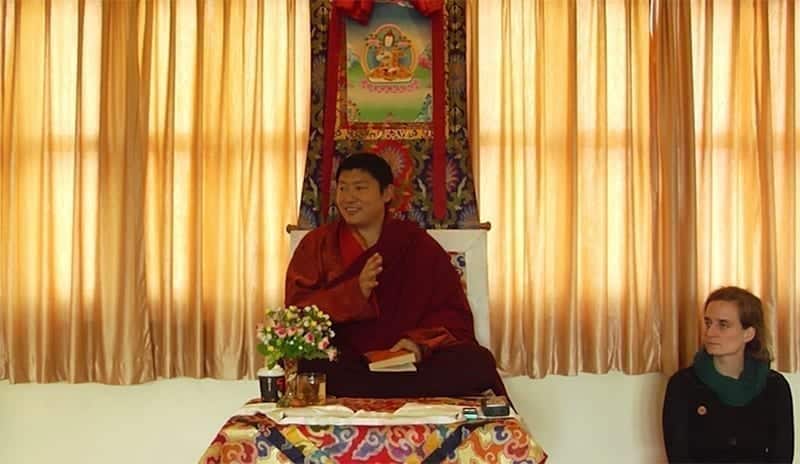Buddhism offers us so many types of training tools. In this video clip, Phakchok Rinpoche discusses the vast array of training tools that we can use to change our lives. Meditation is a crucial aspect, of course. But Rinpoche reminds us that we should take advantage of all the tools and methods. In Buddhist teachings, we often refer to these practices as skillful means. Every practice that we undertake is about transformation. Everything helps us come to the point beyond ego-clinging which brings us beyond karma.
Just what are those tools when we say “everything”? Rinpoche mentions meditation and also includes detachment, prostrations, and rejoicing. These are just a few examples of some of the practices we undertake. The good news is that every one of these practices is designed to help us. Every Buddhist practice functions to counteract our negative patterns. By using these techniques, we can begin to reduce our negative emotions. This is because all of our negative emotions arise from our ego-clinging, our strong sense of self.
Ego-clinging
Where does this ego-clinging originate? It arises from our fundamental problem of not seeing the nature of things. Fortunately, the Buddhist teachings offer something to counteract that problem. Each specially designed tool interacts with specific negative emotions or weaknesses. If we use these different tools effectively, we can dislodge our customary patterns of behavior.
Rinpoche explains that teachings on selflessness and emptiness are specially designed to counteract ego-clinging. And resting in the natural state of mind will counteract ignorance. These are the key elements that will bring about change. We also practice prostrations, visit sacred objects or places, confess our mistakes, rejoice, and accumulate merit, dedication, and bodhicitta. All those practices are different tools that counteract negative tendencies and develop virtues.
Virtues as Training Tools
We can understand how practices teach us virtues by using some examples. In order to succeed in worldly matters as well as in spiritual life, we need motivation. We can’t live our life without some motivation. But in Buddhist teaching, we emphasize developing good motivation. We can learn how to change our mistaken or impure motivation into something better. Similarly, we may already give to others, but perhaps what we give or how we give might not be good. Thus, Buddhist teachers instruct us on generosity and give correctly.
Similarly, we probably have some sense of ethics, but we probably have not examined our ethics carefully enough. And we may have some patience, but probably not very much! If we are honest, we may find that we lack genuine patience. Can we be patient when we’re facing difficulty?
It is the same with our diligence. We may be working hard, spending a lot of hours engaged in some project, but our likes or dis-likes drive our thinking. Therefore, we may have no real purpose or point to our diligence. Our diligence is not really strong enough, Rinpoche says.
Concentration and Knowledge
Can we maintain concentration in our daily life? Here, Rinpoche jokes that we can sometimes be 100% concentrated. We may focus well if we are sitting down to a movie or in front of our computer screen. Yet in schools, students often take pills to increase their so-called concentration. We may be very intent on something we like, but is that meaningful concentration? Rinpoche suggests that we can instead learn beneficial Buddhist concentration. Of course, we are not stupid people. We do have some knowledge, but our normal knowledge is very self-centered. But Buddhism teaches the non-selfish perfection of wisdom.
We have all these basic qualities, but we have not learned how to develop them effectively. And this is why we should learn what Buddhism teaches about these practices and then can benefit from these Buddhist tools!










Responses